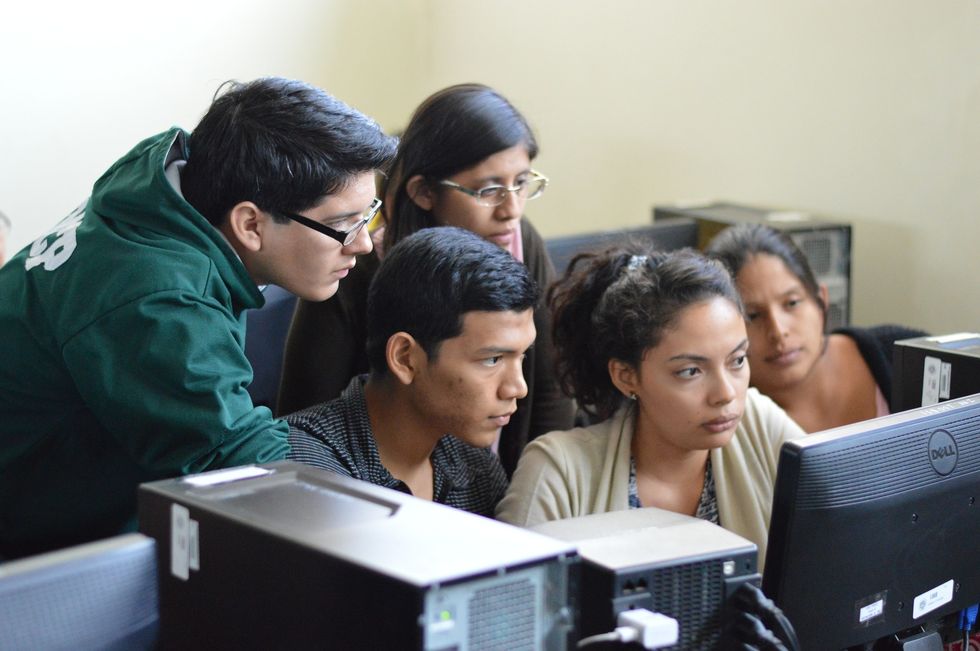After graduation is over, the new class of seniors face the college application process ahead. There is a lot of information hidden from students applying to college, and it leads to the proliferation of private counseling and tutoring services as families get desperate to land their kids a spot at Harvard, MIT, Stanford, Yale or Princeton.
There are parts of the college application that are completely in the student's control, such as the SAT/ACT, GPA and course rigor. Other parts, such as the essays, recommendations, interviews, and extracurricular activities section, are less objective since not everyone will have the same opinion of your profile or personality.
But what garners controversy is what people do not have control over, such as their race or sex. In a perfect world without bias, this would be easily set aside, because race is not a good indicator of who someone really is or what they can achieve. But in our world, some people are inherently disadvantaged because of how society has structurally set them up to be from the very beginning. This is why affirmative action exists. African Americans and Hispanics are less likely to graduate from high school and go onto college.
However to say that this does not cause issues would be an oversight of nuance.
In a current lawsuit against Harvard University, Students for Fair Admissions (a coalition of Asian-American students suing the university) claim that the school has a negative bias against Asian-Americans. Again, before discussing this further, it is important to mention that this trial has conservative bias, as the Trump Administration is in support of the students, and the lawyers behind the student group also lean conservative.
The student group aims to release decades worth of information behind Harvard's admissions process. Harvard scores each applicant on a scale from one to six in academics, extracurriculars, athletics, personality and overall. Asian-Americans in comparison to other races were more likely to be described as "standard strong" which meant that a student was qualified but lacked truly special qualities, and in the same vein, recieved lower personality ratings.
Personally, as a Latina, I cannot vouch for any experiences that Asian students may have, and it would be intellectually dishonest for me to do so. I can say, however, that minorities will not end up taking an over-represented race's spot. Latinos are less likely to apply to college and chase four-year degrees, so there is no real competition between Asians and Latinos here.
In my family, no one is really required to chase after college, even though most are capable and do so, even if it is not immediately after high school. The likelihood that someone in my family even has Harvard on their radar is rare, not because they think that they don't need a good education but because there are more ways to do so that are much easier. If one of us gets into Harvard, we'll party; any excuse is a good excuse to get together, trust me.
In fact, the group mentions that a change in Harvard's approach would lead to a decrease in white students at the university more than underrepresented minorities. On the other hand, in the documents the group also says that, "What Harvard will not admit — but what the record shows — is that race is not only an important factor; it is the dominant consideration in admitting Hispanics and African Americans."
I find this contradictory to what they say about how white applicants will be the most affected by a change in the application process, yet they still say that this problem is caused by the consideration for the admission of Hispanics and African Americans. Why would affirmative action need to be changed then in that case? The only thing that needs to be fixed here is the school's attitude on Asian Americans, not affirmative action in general.
Some of the statistics that the group uses are also flawed, as they are based on the premise that only the academic factor should be considered. The issue with that is that richer students will end up with higher SAT scores. Also in the same vein, Hispanics and African Americans make less than Asians and Whites.
I feel that the students here have a genuine argument for change, but I do not feel that the blame lies on affirmative action. I do not think that removing affirmative action will fully resolve the issues that the students are seeing. There is an inherent bias against Asian Americans but why should that mean taking out your anger on others who are disadvantaged as well? If you were to remove it, how can you be assured that anything would really change?
Let us say that affirmative action is removed, and as usual, the same amount of students applied to the school with the application process being generally the same. I do not think that the schools will entirely change their stance on diversity, and if about the same amount of Asian Americans apply, won't the same issues occur? Asian Americans are assumed to have the same personality which is a racist generalization, and you can't expect that to change with the elimination of one factor. They already said that the main groups that are competing against each other in this situation are Asians and whites, not Asians and other underrepresented minorities. Minorities are not taking away an Asian's seat at the table, I assure you.
The best solution for this is a change in attitude at the fundamental level, which does not include changing affirmative action. I think that this lawsuit can achieve change; I just feel that they aren't attacking the right policy.
















